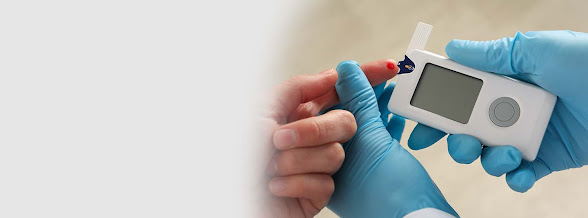Things To know About Type 1 Diabetes Treatment- Discussed By Medical Expert
Type 1 diabetes, earlier known as juvenile diabetes or insulin-dependent diabetes, is a chronic health condition wherein one’s blood sugar levels spike due to the total loss of functioning of beta-cells of Islets of Langerhans of the pancreas in producing insulin. Insulin is a hormone that allows sugars to enter cells to produce energy. If there is little or no insulin, the body won’t be able to utilize sugars for energy and hence there would be a build-up of sugars (glucose) in the blood. Many scientists and doctors call this form of diabetes an autoimmune condition as one’s immune system can unintentionally damage the beta cells in his/her own body.
How can One Recognize Type 1 Diabetes?
According to Dr. Sudhakar Reddy, an expert Endocrinologist in Hyderabad at MAGNA Centre for Obesity Diabetes and Endocrinology, ‘Type 1 diabetes evolves rapidly, meaning a healthy person can develop type 1 diabetes in just a week or a month. The onset of this form of diabetes can be at a younger age between the ages of 10 and 20’.
Patients suffering from type 1 diabetes are reported for very high blood sugar levels and are symptomatic. The indications include frequent urination, thirst, excessive hunger, fatigue, blurry eyesight, tingling or numbness in feet, vaginal yeast infections, slow healing of sores and cuts, and significant weight loss all in just a matter of a couple of weeks or a month. Some Type 1 diabetes patients also experience diabetic ketoacidosis and can be easily tested for ketone bodies in their urine samples. The combination of symptoms of such patients includes abdominal pain, excessive vomiting, flushed face, fruity breath odor, dry skin and mouth, and deep, rapid breathing. Diabetic ketoacidosis is where the blood starts to accumulate acetoacetate or beta-hydroxybutyrate. It can be a life-threatening condition for type-1 diabetics.
Anyone experiencing symptoms of type-1 diabetes must consult a healthcare provider (an endocrinologist) who would confirm with some diagnostic tests. These include blood glucose tests, glycosylated hemoglobin tests (A1c), and antibody tests to check for the presence of auto-antibodies.
If one is looking for Type 1 Diabetes Treatment in Hyderabad one can consult the leading endocrinologist, Dr. Sudhakar Reddy at MAGNA Centre for Obesity Diabetes and Endocrinology. Dr. Sudhakar Reddy has vast experience in treating all types of diabetes, Thyroid, Obesity, Growth Problems, Metabolic bone disorders like Osteoporosis, Male and Female Sex Hormone problems, and even Infertility Issues.
Treatment of Type 1 Diabetes:
Type 1 diabetes can happen to anyone at a fast rate and their symptoms can be severe. So, those who are diagnosed with it must go for a hospital stay. The treatment involves going for health check-ups including blood sugar monitoring and urine testing every week until blood sugars are in good control. The healthcare providers will even look after the patient’s diary of meals, snacks, and insulin injections. It may take a few weeks to figure out the right insulin dose which matches the daily meals and activity schedules of the patients. When the blood sugar levels are getting stabilized, a few follow-up visits to the doctor would be needed.
To help manage diabetes, an endocrinologist may recommend the patients meet a clinical pharmacist, a dietician, and certified diabetes care and education specialist. But, good control of blood sugars is possible with self-care. The basic steps of diabetes management must be known to a diabetic individual. These include:
Ways to recognize and treat hypoglycemia (low blood sugar) and hyperglycemia (high blood sugar)
Taking insulin
Planning of meals, including counting carbohydrates
Ways to handle sick days
Testing of glucose levels in blood and ketone bodies in urine
Strategies to buy diabetes supplies and their storage
Adjustments in taking insulin and food when exercising.
Insulin for the Management of Type 1 Diabetes
Every type 1 diabetic is recommended for daily intake of synthetic insulin multiple times a day to live healthily. Insulin can be administered under the patient’s skin using an insulin pen, a sterile syringe, or an insulin pump. It can even be inhaled. Insulin types vary in how quickly they start to control blood sugar levels and how long their effects last in the body. An endocrinologist can help in choosing the right type of insulin for the patient and also tell about the right time to use it.
The amount of insulin that the patient would require all day long depends upon several factors such as the patient’s age, body weight, types of food consumed, level of physical activity, and blood glucose level at any particular time. It also differs across one’s lifespan and under special circumstances. For instance, adolescents, pregnant women, and those who take steroids typically require higher doses of insulin. Due to this reason, it’s important for the patient to regularly see an endocrinologist usually at least three times a year to ensure that insulin dosages and management of diabetes are working.
Blood Sugar Monitoring for Type 1 Diabetes
Throughout the day, the patient must closely monitor his/her blood sugar levels to ensure it's in a healthy range and avoid complications. It can be done through the use of blood glucose meters where one can prick the finger and put one drop of his/her blood on the test strip of the meter and check for blood sugar level values that appear on the meter within seconds. Another approach is continuous blood glucose monitoring using a sensor that is inserted under the skin after every 1-2 weeks.
Carb Counting for Type 1 Diabetes
Carbohydrates are one of the macronutrients found in certain foods and drinks. When they are digested by the body, they turn into glucose to provide energy which raises the blood sugars. This is why type 1 diabetics must have insulin as per their intake of carbohydrates to ensure controlled levels of blood sugar. Endocrinologists in Hyderabad at MAGNA Centre for Obesity Diabetes and Endocrinology can help in determining the patient’s insulin-to-carb ratio. To know more please visit at https://www.magnacode.co.in/type1-diabetes-mellitus or book an appointment with the medical experts at https://www.magnacode.co.in/contact.




Comments
Post a Comment